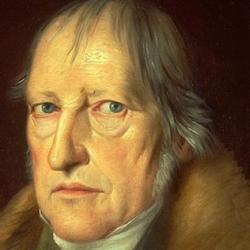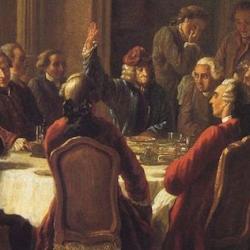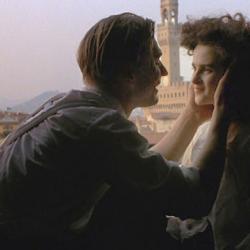Allison Coudert (Religion, Magic, and Science in Early Modern Europe and America) speaks of an “anthropological revolution” taking place in the eighteenth century, as Europeans became optimistic about the future prospects of human evolution and improvement. This was partly the result of assaults on the doctrine of original sin, but some of the impetus came from internal changes within Christianity:
“The Protestant elimination of Purgatory severed the close ties previously existing between the living and the dead, and this, together with the Protestant emphasis on an individual’s ‘calling’ in this world, encouraged a more positive attitude toward the physical world and human activity in it. A similar validation of human activity occurred among Catholics as well, although for different reasons. Stung by Luther’s attack on indulgences, Catholic reformers worked hard to put to rest the notion that salvation could be bought, emphasizing instead a new kind of activist philanthropy directed at transforming the lives of those on the margins of society. Some thirty new religious orders and congregations were founded from the late sixteenth through the eighteenth century, many with female branches and nine devoted exclusively to women. The idealization of poverty and the salvific value of being poor characteristic of the medieval church was rejected by Protestants and Catholics alike. Poverty became a social issue that had to be addressed, and the poor, especially poor children, were now considered legitimate objects of charity with the potential to become productive, moral citizens” (112–3).
Novel reading had its role in this anthropological shift, and this too had roots in early modern Christianity: “The novel had at least some of its roots in the spiritual autobiographies written by Protestants to gauge their spiritual progress. The same kind of scrutiny of character and motives one finds in Bunyan’s Pilgrim’s Progress is translated into secular and psychological terms when the innocent hero or heroine must make his or her way in the treacherous world. In a postscript to Clarissa, Samuel Richardson claimed that the novel was more effective than the pulpit in inculcating morality for just this reason. Richardson went so far as to say that he offered readers ‘the great doctrines of Christianity under the fashionable guise of an amusement’” (114–5).
Enlightened readers turned to novels as a substitute for revelation: “Diderot, for example, wrote an ‘Eloge de Richardson’ (1761) in which he reveals how deeply many eighteenth-century readers empathized with Richardson’s characters to the point of modeling their own behavior on them. In previous centuries such a strong identification between author and reader had been considered a distraction from the real source of virtue, God. But this was not a problem for Diderot and his contemporaries who saw the source of virtue in other human beings. As Diderot said: ‘I have often said, as I read him: I would happily give my life to be like this woman; I would rather be dead than be that man’” (115).














